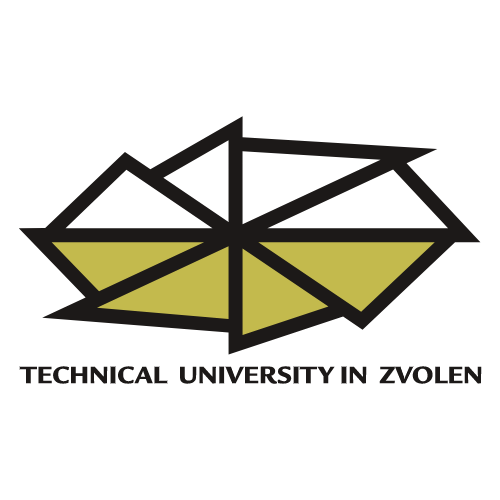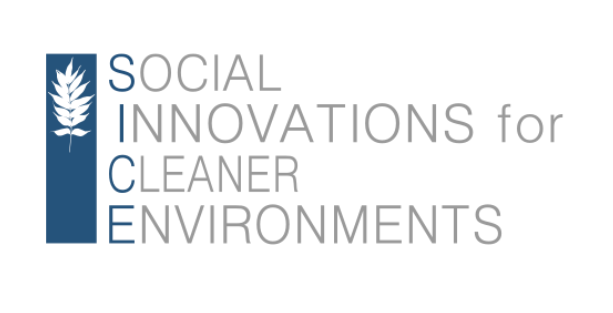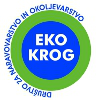Search Results Stakeholder
You have searched in Stakeholders with the following criteria: << Go Back
Civic Participation
The search returned 2 results.

Vladislav Kaputa
- Slovakia
- Knowledge
- Skills
- Competencies
- Values
- Attitudes
- Behaviours
- Economic Aspects of Environmental Citizenship
- Social Aspects of Environmental Citizenship
- Political Aspects of Environmental
- Citizenship
- Environmental Citizenship General
- Individual actions
- Collective actions
- Actions in Private sphere
- Actions in Public sphere
- Actions in Local scale
- Actions in National scale
- Actions in Global scale
- Preventing new environmental problems
- Solving environmental problems
- Addressing structural causes of environmental problems
- Achieving critical & active engagement and civic participation
- Practising environmental rights & duties
- Promoting inter- & intra-generational justice
- Developing healthy relationship with nature
- Achieving sustainability
- Inquiry
- Planning Actions
- Networking and Sharing in Scales
- Sustain Environmental and Social Change
- Civic Participation
- Evaluation and Reflection
The Technical University in Zvolen (also known as TUZVO) is a modern higher education institution providing education in all three levels of studies within the European Higher Education and Research Area. In the higher education system in Slovakia, the TUZVO has a unique specialisation within a focus on the spheres of forest – wood – ecology – environment with an appropriate expansion in other technical, natural, security, economics as well as design spheres.

Audra Balunde
- Lithuania
- Knowledge
- Values
- Attitudes
- Behaviours
- Social Aspects of Environmental Citizenship
- Environmental Citizenship General
- Collective actions
- Actions in Public sphere
- Actions in Local scale
- Actions in Global scale
- Preventing new environmental problems
- Solving environmental problems
- Achieving sustainability
- Sustain Environmental and Social Change
- Civic Participation
Social Innovations for Cleaner Environments (SICE) is a non-profit organization that strives for creating a cleaner and more sustainable World. SICE vision is a clean World without waste or unsustainable activities. SICE mission is to conduct research in order to develop evidence-based innovative social technologies for sustainability for communities and organizations.

Juljana Sokoli
- Albania
CCIS has established itself as a civil society organisation with a regional and sustainable development focus. It works in partnership with research centers and universities, youth and local communities, civic groups and non-profit organizations as well as public and private sectors. CCIS has a well-established network of partners in Albania and in South East Europe, particularly in Serbia, Kosovo and Macedonia. With its very qualified expertise and renowned pool of consultants and excellent performance in project development, CCIS seeks to be a leading Think Tank in Albania working primarily in the following areas: good governance, human rights and security, sustainable development, youth and social innovation. QSKN produces policy papers, research reports; it organizes conferences, capacity-building programmes and public events.
Mr. Shachar Kahanovitz
- Israel
- Knowledge
- Skills
- Competencies
- Values
- Attitudes
- Behaviours
- Economic Aspects of Environmental Citizenship
- Social Aspects of Environmental Citizenship
- Political Aspects of Environmental
- Citizenship
- Individual actions
- Collective actions
- Actions in Private sphere
- Actions in Public sphere
- Actions in Local scale
- Actions in National scale
- Preventing new environmental problems
- Solving environmental problems
- Addressing structural causes of environmental problems
- Achieving critical & active engagement and civic participation
- Practising environmental rights & duties
- Promoting inter- & intra-generational justice
- Developing healthy relationship with nature
- Achieving sustainability
- Planning Actions
- Networking and Sharing in Scales
- Sustain Environmental and Social Change
- Civic Participation
The Heschel Center for Sustainability develops and implements the vision of sustainability: a just and unified society, resilient and democratic economy, and a productive and healthy environment for all inhabitants. The center links conceptual knowledge and practical knowledge, spreads the story of sustainability in diverse creative ways, and supports change agents from all sectors in promoting significant change in Israel.
Zivit Linder, Director
- Israel
- Knowledge
- Skills
- Competencies
- Values
- Attitudes
- Behaviours
- Economic Aspects of Environmental Citizenship
- Social Aspects of Environmental Citizenship
- Political Aspects of Environmental
- Individual actions
- Collective actions
- Actions in Private sphere
- Actions in Public sphere
- Actions in Local scale
- Actions in National scale
- Actions in Global scale
- Preventing new environmental problems
- Solving environmental problems
- Addressing structural causes of environmental problems
- Achieving critical & active engagement and civic participation
- Practising environmental rights & duties
- Promoting inter- & intra-generational justice
- Developing healthy relationship with nature
- Achieving sustainability
- Planning Actions
- Networking and Sharing in Scales
- Sustain Environmental and Social Change
- Civic Participation

Uroš Macerl
- Slovenia
- Attitudes
- Individual actions
- Collective actions
- Actions in Private sphere
- Actions in Public sphere
- Actions in Local scale
- Actions in National scale
- Preventing new environmental problems
- Solving environmental problems
- Practising environmental rights & duties
- Planning Actions
- Sustain Environmental and Social Change
- Civic Participation
Hagit Gefen, Director
- Israel
- Knowledge
- Skills
- Competencies
- Values
- Attitudes
- Behaviours
- Social Aspects of Environmental Citizenship
- Citizenship
- Environmental Citizenship General
- Individual actions
- Collective actions
- Actions in Private sphere
- Actions in Public sphere
- Actions in Local scale
- Actions in National scale
- Preventing new environmental problems
- Solving environmental problems
- Addressing structural causes of environmental problems
- Achieving critical & active engagement and civic participation
- Practising environmental rights & duties
- Promoting inter- & intra-generational justice
- Developing healthy relationship with nature
- Achieving sustainability
- Planning Actions
- Networking and Sharing in Scales
- Sustain Environmental and Social Change
- Civic Participation
The green network is a NGO that deals with Education for Sustainable development and social change. Toward this end it has developed a pedagogy that envisions to create deep understanding of sustainability issues, a sense of belonging, nourish pluralism and the capcaity to inspire change. This organization adopts a network approach through which its ~50 professionals create networks with teachers in all sectors of the Israeli society (Jews and Arabs, secular and religious, in urban and periperal environments).
Gaja Brecelj
- Slovenia
- Knowledge
- Skills
- Competencies
- Values
- Attitudes
- Behaviours
- Social Aspects of Environmental Citizenship
- Political Aspects of Environmental
- Citizenship
- Environmental Citizenship General
- Individual actions
- Collective actions
- Actions in Private sphere
- Actions in Public sphere
- Actions in Local scale
- Actions in National scale
- Preventing new environmental problems
- Addressing structural causes of environmental problems
- Achieving critical & active engagement and civic participation
- Practising environmental rights & duties
- Promoting inter- & intra-generational justice
- Developing healthy relationship with nature
- Achieving sustainability
- Inquiry
- Planning Actions
- Networking and Sharing in Scales
- Sustain Environmental and Social Change
- Civic Participation
- Evaluation and Reflection
STRATEGIC AREAS AND GOALS Environmentally sustainable society: Slovenia is fulfilling its responsibilities for a global environmental balance, especially in the fields of climate and biodiversity. Socially just society: Slovenia is actively involved in solving local and global problems, striving for a society of sustained prosperity for all (a society defined by indicators more relevant and comprehensive than GDP, by equitable relations, responsibility and provision of equal opportunities for all, without enrichment on account of exploitation). Locally self-subsistent society: Slovenia’s basic needs by 2030 are covered by local resources (energy, food, water and other resources) within the limits of their carrying capacity. Open society: Slovenia has established a participatory democracy. To ensure the decisions are in the public interest, the decision-making processes are open and based on the inclusion of civil society. Non-governmental sector is equal to the public and private sectors. Umanotera understands sustainable development as a dynamic balance between man and nature, which allows social justice and intergenerational solidarity. Sustainable development also means that people should exploit the unlimited capability of their minds instead of exploiting limited natural resources. Only in this way will we be able to leave our environment and resources to future generations in the best possible condition.

